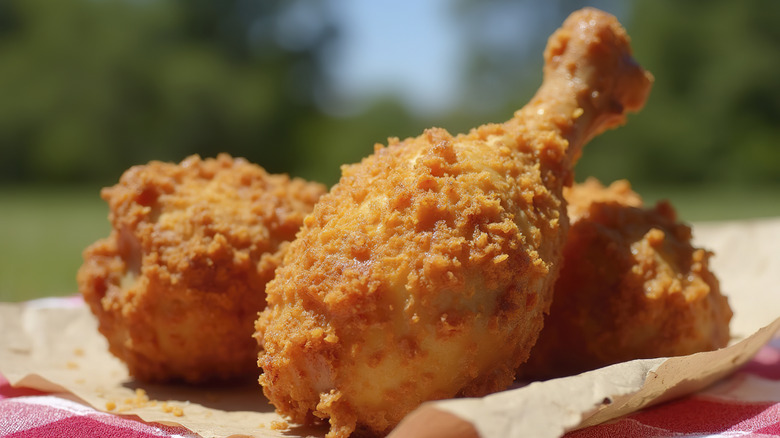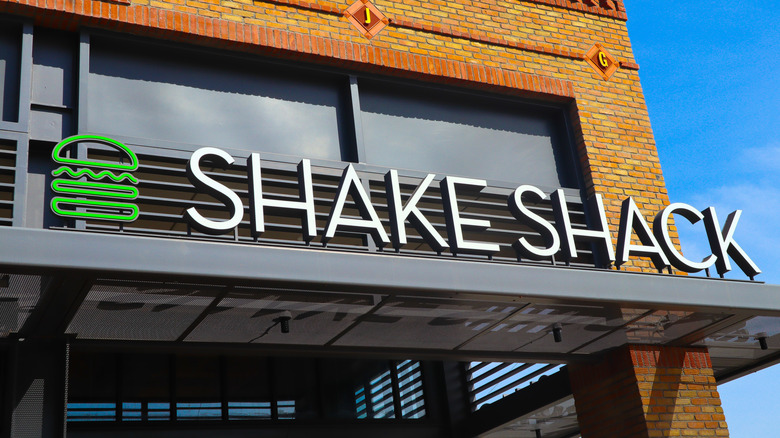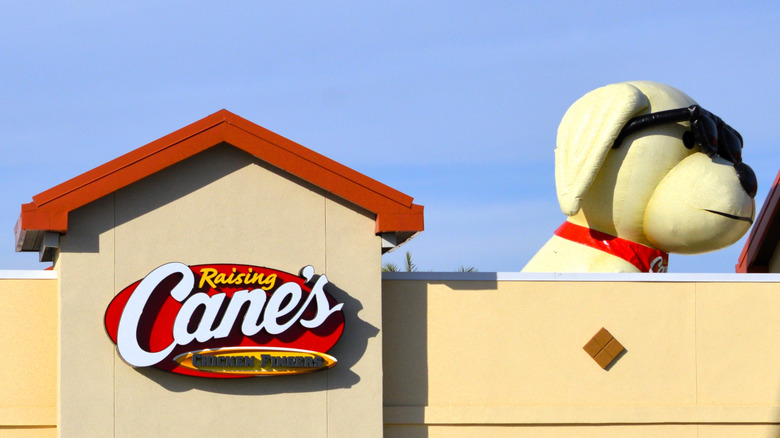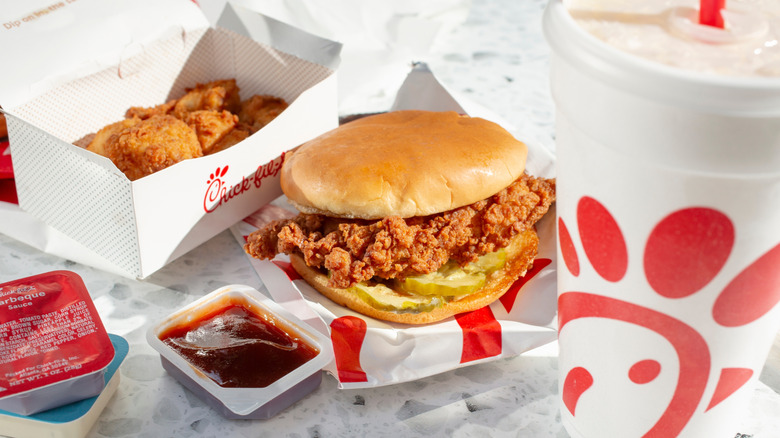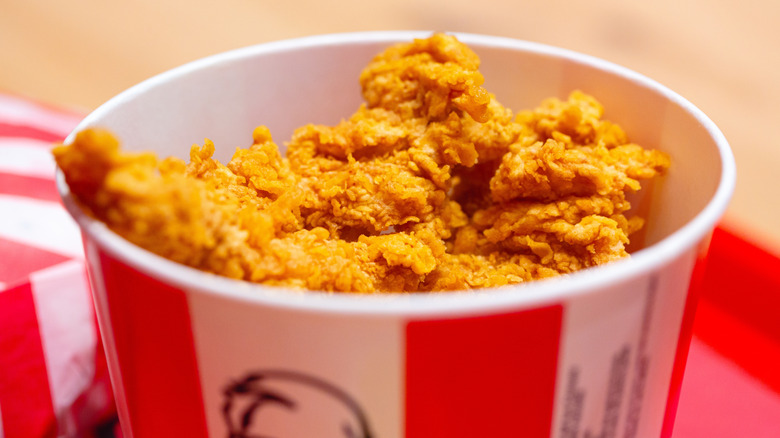4 Fast Food Restaurants That Serve 100% Chicken
When you order chicken at a fast food restaurant, you obviously expect to receive chicken. But the truth is there are many fast food restaurants that don't use 100% chicken in their chicken items, including some industry giants like Wendy's and McDonald's. Though their chicken offerings do contain real chicken, and can be plenty delicious, the meat contains various additives meant to improve taste, texture, shelf life, and more.
But these assorted additives are not required to produce tasty chicken, even in a fast food context, and some chains stick to this more streamlined outlook. These include two titans of the fast food chicken scene: KFC, which popularized the very concept of fast food chicken in the first place, and Chick-fil-A, one of the fastest-growing fast food businesses in the world.
With such large and successful businesses focusing on real chicken, it follows that some newer chains would also avoid adding to much to their meat. Two such chains are Raising Cane's and Shake Shack, and their commitment to real chicken is likely a big part of each business' ongoing success.
Shake Shack
Shake Shack might be better known for smash burgers, but its crisp and juicy chicken has stood out ever since a chicken sandwich — the Chicken Shack — joined the permanent menu in 2016. And Shake Shack has only used 100% natural and antibiotic-free chicken in every Chicken Shack since.
But Shake Shack's real chicken goes beyond its chicken sandwich. The chain's Chick'n Bites, despite having a name fit for meat-free alternative nuggets, are also made from all-natural whole muscle meat free of antibiotics. When Chick'n Bites debuted in 2019, they soon proved to be a profitability challenge, in part because of high standards for quality meat.
According to Business Insider, a Shake Shack executive told an earnings call that "chicken is a high-cost item in our basket, particularly the premium-quality, fresh, antibiotic-free, whole breast meat that we source." So the next time you feel like Shake Shack's chicken is relatively pricey, you at least know that the money goes back into a good product.
Raising Cane's
You don't have to be a farmer, butcher, or chef to know that chickens do not have fingers. But Raising Cane's Chicken Fingers isn't in the mystery meat business, either. Chicken Fingers is just the branded term that Raising Cane's uses for its chicken tenders.
Even though one of the differences between chicken fingers and tenders is that the former doesn't necessarily have to be chicken tenderloin, Raising Cane's exclusively uses this juicy, tender cut sourced from premium chickens. Chicken tenderloin might taste good, but this thin cut of meat also cooks quickly, making it perfect for fast food kitchens.
Cane's is one of many examples of the big business of high-quality chicken. Founder and owner Todd Graves is one of the five richest fast food CEOs, and has so far raked in a net worth of about $9.5 billion. While Graves' investment choices are not publicly known, that massive fortune sprouted from the humble roots of high-quality fried chicken.
Chick-fil-A
When it comes to customer satisfaction, Chick-fil-A isn't just a standout fast food chicken; it's ranked among the best quick-service food businesses, period. While customer satisfaction is a reflection of the entire business, there's little doubt that a big part of it is the food. And at Chick-fil-A, that starts with the chicken.
For all chicken menu items, Chick-fil-A exclusively uses chicken breast meat without any hormones or steroids, which are illegal in U.S.-regulated poultry businesses. Chick-fil-A also enforces certain animal welfare standards on all its suppliers, including cage-free chickens that are able to freely roam in temperature-controlled barns.
One minor additive has sparked some controversy for the chain, though. In 2024, Chick-fil-A transitioned from using completely antibiotic-free chicken to chicken with no antibiotics important to human medicine, an industry term abbreviated as NAIHM. But the good news is these are present to help keep the birds healthy and are completely cleared from each animal's system prior to processing, long before it will ever reach a customer.
KFC
None of the previous restaurants might sell chicken, or even exist in the first place, without KFC. From its humble origins with Harland Sanders finalizing the famous secret recipe in 1940s North Corbin, Kentucky, KFC was the first to prove that fried chicken could be a major player in fast food. Sanders sold the business in 1964, and the now-global chain has nearly 32,000 restaurants in 150 countries and territories.
Although Colonel Sanders had major disagreements with KFC's direction after selling the business and occasionally berated franchisees for disrespecting his vision, one thing that remains from his day is the use of pure chicken.
In the U.S., KFCs still use 100% real, U.S.-raised chicken for all their chicken products — although the birds are now sourced from poultry mega-suppliers like Tyson Foods and Pilgrim's Pride. According to KFC, the chicken in its U.S. restaurants is hormone- and steroid-free per federal law, and it is also free of any antibiotics important to human medicine.
